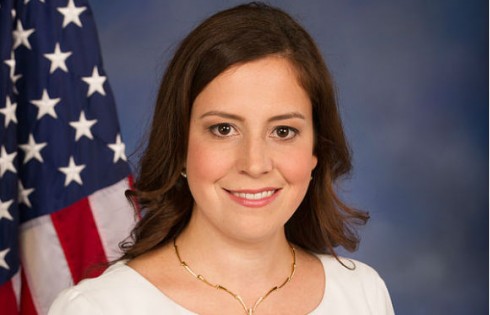
The continued embrace of diversity, equity and inclusion in STEM combined with a broad decline in academic standards is producing a generation of scientists who are less capable than their predecessors, warned some scientists in recent interviews with The College Fix.
From easier math classes in high school to the elimination of standardized tests to extreme grade-inflation to DEI tropes that elevate lived experiences and ways of knowing over facts and data, the trend represents a pressing problem for science professors working to protect STEM and preserve its standards and meritocracy.
Alex Small, chair of the physics and astronomy department at the California State Polytechnic University, Pomona, said it starts early in a student’s education.
“The K-12 system is walking away from standards at all levels,” he told The College Fix in a recent phone interview.
For example, he said while most of his students took some sort of calculus class their senior year of high school, “at least a third of them test into a class that’s lower than calculus because what happens is the schools will push people through the pipeline.”
“Even if someone hasn’t mastered algebra, they’ll get some sort of generous grade in their prerequisite math classes and then be put into calculus their senior year,” he said.
Similar trends concerning the inability of college students to do high school math have been reported nationally post-COVID, with educators lamenting how incoming freshmen no longer can be expected to know how to add fractions or subtract a positive number from a negative number.
Yi-Zen Chu, a professor of physics at the National Central University in Taiwan, who was educated in the U.S. and has been a harsh critic of DEI, stated in a recent email to The Fix that he believes practices such as “grade inflation and lowering the bar” contribute to the lack of preparation exhibited by American college students.
The concern circles back to the “‘everyone gets a prize’ philosophy that has been around for quite a while now,” he said, referring to what’s sometimes called the “Participation Trophy” phenomenon.
Chu suggested one way to combat these practices at the college level “is to staunchly defend the use of standardized tests like the SAT.”
“Students have to compete on the same test to prove their ability relative to others,” he said. “This way, schools know that hyper-grade-inflation will only count against the integrity of the school in the medium/long run.”
Small said what these students need is supplemental instruction, time, extra problem solving sessions, and extra practice.
“There’s no such thing as too much practice, and that’s especially true when you haven’t yet had enough practice,” said Small.
However, although some educators and institutions have embraced remedial summer programs and additional tutoring services, others work toward ideological goals related to DEI that ultimately may prove detrimental to students, as well as the field of physics more broadly.
Lawrence Krauss, one of the world’s leading theoretical physicists, noted in a 2022 interview with The College Fix, “I have written many articles about the absolutely ludicrous ways in which DEI is … enforcing ridiculous notions about both keeping people out of physics who should be in, and trying to interfere with meritocracy and interfere [with] and take over the appointment process so that merit isn’t the crucial factor.”
Small, in a November 2023 article published by Heterodox STEM, discussed the column “Just Physics?” It appears in the physics education journal The Physics Teacher and regularly features discussions from different physics educators exploring alternative pedagogies and the place of DEI in physics education.
Highlighting one recent article, Small wrote in his critique that it “focused on the putative anti-Blackness of the physics community” but offered little in terms of what “changes can or should be implemented” beyond spending “more time in physics class discussing social issues.”
In December, The College Fix reached out to Deepak Iyer, one of the co-editors of “Just Physics?” for comment. Iyer replied he would need to get approval from his editor-in-chief before formally responding. On Jan. 24, Iyer notified The Fix he had still not received a response.
“Some sort of discussion of wider social issues…in moderate doses has its place,” Small told The Fix. “Oppenheimer got a lot of people asking questions again about one of the sort of pivotal moments of the American physics community.”
“If DEI is brought in just as an occasional discussion topic that doesn’t really crowd out the fundamentals, then I don’t have a fundamental objection to it,” he added.
However, Small said, when too much time is spent discussing social issues in physics classes, the fundamentals get crowded out, which, as he pointed out in his Heterodox STEM article, could “hurt students with weak prior preparation, as they need even more focus on fundamentals.”
Peter McCullough of the physics and astronomy department at Johns Hopkins argues there are times when discussions of DEI topics in STEM may be called for or even beneficial.
In the comments section of Small’s article, McCullough highlighted issues with fingertip pulse oximeters, describing the devices as “a technology that works better on lighter skin than darker skin.”
In an email to The College Fix, McCullough also noted claims that some facial recognition programs have difficulty in accurately identifying black faces or recognizing them as faces at all. According to McCullough, such examples might get students thinking about unintended effects of different technologies on society.
Yet, Small noted, a certain number of instructors spending too much time discussing DEI in physics class is not the biggest threat posed by DEI to physics education.
“Where DEI really comes into a lot of discussion among physics educators,” said Small, “is in discussions about standards.”
“It’s not really … so much a discussion of ‘Oh, should we talk about representation during class time’ and more about what can we reasonably expect and if a student can’t meet the standard, is it unfair of us to nonetheless insist on that standard,” he said. “And that’s a much more complicated and dangerous discussion, because … it just perpetuates under preparation.”
MORE: Math professors: Incoming students can’t even add fractions, subtract
IMAGE: Wave Break Media / Shutterstock
Like The College Fix on Facebook / Follow us on Twitter






Please join the conversation about our stories on Facebook, Twitter, Instagram, Reddit, MeWe, Rumble, Gab, Minds and Gettr.